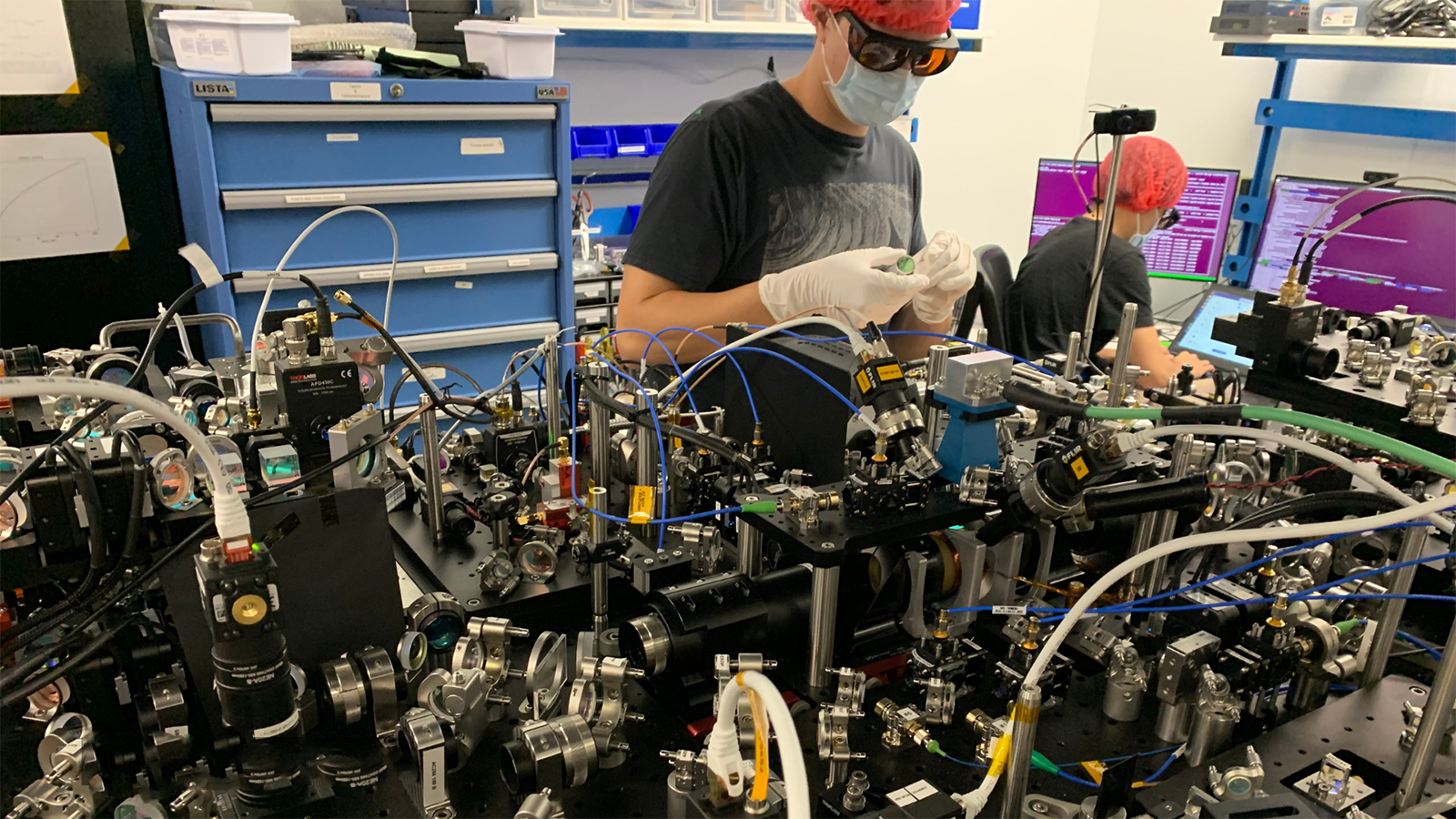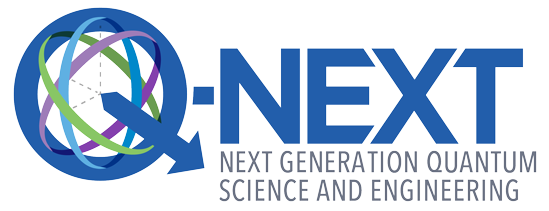quantum computing
-
PASQAL and University of Chicago announce neutral atoms quantum computing research collaboration agreement
University of Chicago's Hannes Bernien forms a new collaboration with PASQAL to advance neutral-atom quantum computing by developing new techniques for enabling high-fidelity qubit control. Read More
-
The journey to building a true quantum computer
From Intel: Intel's James Clarke lays out Intel's path to building a full-stack commercial quantum system, including achievements and next steps. Read More
-
Quantum startup ColdQuanta draws investors with ‘here-and-now’ applications
From The Wall Street Journal: ColdQuanta, a quantum-computing startup based in Boulder, Colorado, has raised $110 million in a Series B round, drawing investors in a tight market with near-term plans to harness and sell the present-day capabilities of a technology whose full potential is still years away. The company will use the new capital to accelerate efforts to develop revenue-generating hardware and software systems that leverage quantum technology in areas like atomic clocks, sensors and higher-precision radio frequencies and GPS networks. Read More
-

JPMorgan Chase is newest partner in Q-NEXT quantum research collaboration
As a member of Q-NEXT, JPMorgan Chase will work toward advancing quantum technologies for fundamental algorithms, including in finance. Read More
-

What they did this summer: perspectives from five Open Quantum Initiative undergraduate fellows
Five undergraduate fellows supporting research at the Q-NEXT quantum research center share what they’ve learned about quantum information science, their research experiences and their aspirations. Read More
-

How the five National Quantum Information Science Research Centers harness the quantum revolution
While having their own unique areas of expertise and resources, the U.S. DOE National Quantum Information Science Research Centers are all aligned to the same mission — the advancement of quantum information science. Read More
-
ColdQuanta, Super.tech merger holds industry implications
From Photonics: Quantum company ColdQuanta acquired Chicago-based quantum startup Super.tech in a merger that combines ColdQuanta’s hardware capabilities with Super.tech’s software innovations. Both companies are affiliates of Q-NEXT, a U.S. Department of Energy (DOE) National Quantum Information Science Research Center led by Argonne National Laboratory. Read More
-
Versatile neutral atoms emerge as an intriguing quantum computing platform
From Physics Today: The University of Wisconsin–Madison's Mark Saffman report the first demonstrations of multistep quantum algorithms in arrays of rubidium atoms. Read More
-

ColdQuanta and Super.tech provide cutting-edge quantum research tools for Q-NEXT
Global quantum ecosystem company ColdQuanta and startup Super.tech have merged to address pressing needs in quantum research through innovative hardware and software platforms. Read More
-
Fred Chong returns to Entangled Things
From the Entangled Things podcast: Fred Chong of the University of Chicago discusses the acquisition of Super.tech by ColdQuanta, the benefits of software development companies working directly with hardware manufacturers, and neutral atom architecture. Read More
In the News
See all In the News-
The best qubits for quantum computing might just be atoms
From Quanta: Mark Saffman of the University of Wisconsin–Madison and Infleqtion is featured in this comprehensive overview of neutral-atom qubit research. Read More
-
How quantum computing could help us understand the universe
From PBS NewsHour: David Awschalom appears in this piece on the next generation of computing, one that will be far more sophisticated and dependent on understanding the subatomic nature of the universe. Read More
-
PME-led research into protein-based qubits earns $2.75M Moore Foundation grant
Bolstered by a new $2.75 million grant from the Gordon & Betty Moore Foundation, a team led by University of Chicago's Peter Maurer will soon study qubits made from protein. Read More
-
Infleqtion unveils 5-year quantum computing roadmap, advancing plans to commercialize quantum at scale
From Quantum Insider: Infleqtion shares a broad business update, including the first look at its new 5-year quantum computing roadmap. The roadmap's centerpiece is Sqorpius, the next phase of Infleqtion’s quantum computing program. Read More
-
Bringing quantum entanglement to the people
From the National Science Foundation: NSF’S Quantum Leap Challenge Institute Hybrid Quantum Architectures and Networks at the University of Illinois Urbana-Champaign, a Q-NEXT partner, has created a working demonstration that brings entanglement between photons to a public setting for the first time. Read More
